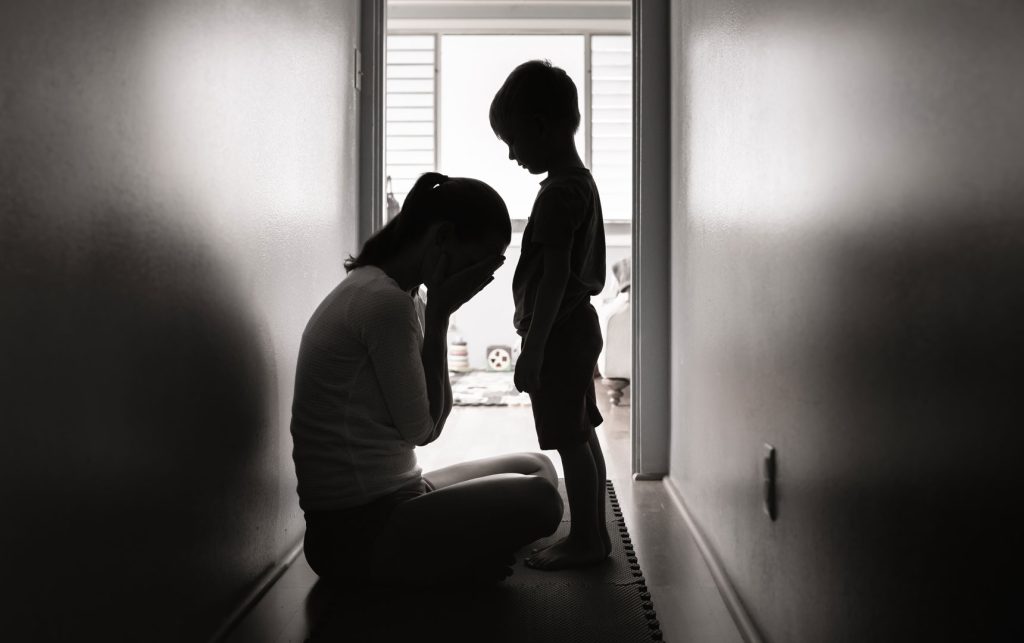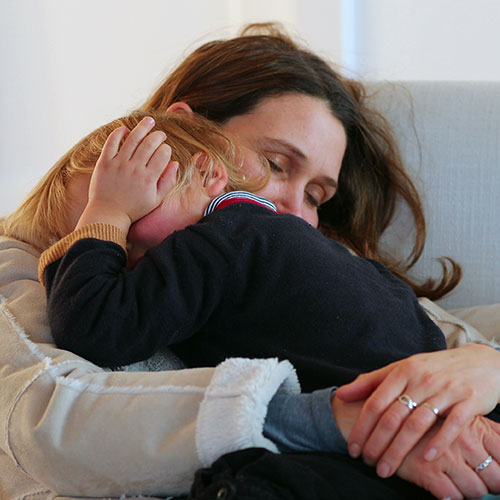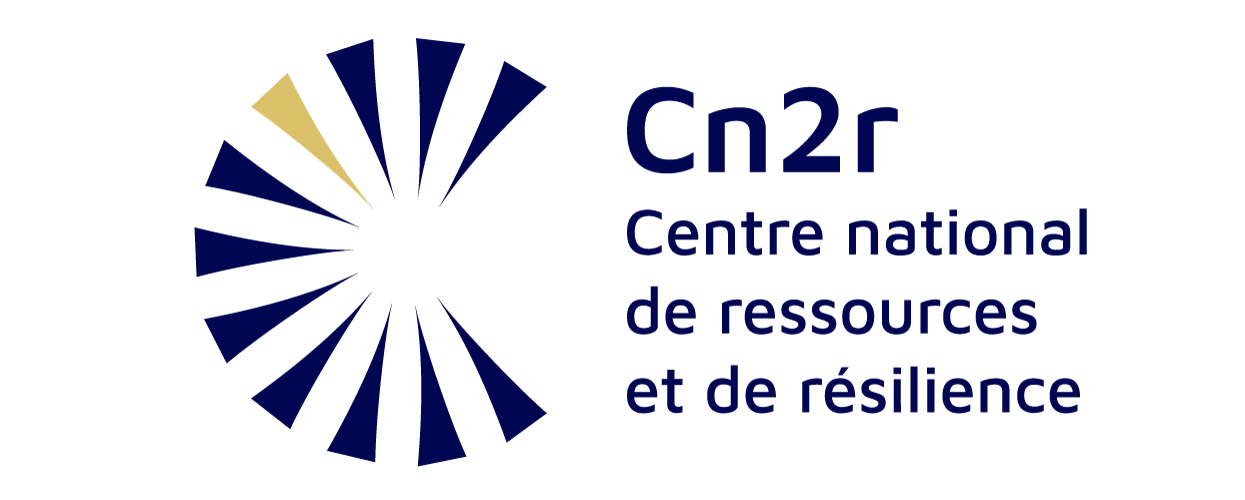Both children and adults can suffer from psychotrauma. Children are not spared traumatic events: accidents, assaults, bullying, mistreatment, domestic violence, sexual abuse, incest, attacks, wars, migrations, natural disasters, attacks by animals, the violent death of loved ones, accidents, etc. These events can leave deep psychological wounds. Childhood trauma can lead to post-traumatic stress disorder (PTSD). On the other hand, if the traumatic event is repeated or lasts for a long time without the child being able to flee or protect him/herself, the child's development is affected. This is known as traumatic development disorder. However, it's not inevitable: it's possible to get better and be cured.
Children and teenagers
→ 1 child in 10 is a victim of harassment, abuse or violence.
→ 80% of violence takes place within families.
→ Only 1 in 10 children reveal the violence they have suffered.
→ 1 in 5 girls and 1 in 13 boys claim to have been victims of sexual violence during their childhood. Among them, 1 child in 2 is a victim of incest before the age of 10.
→ Children with disabilities are 4 times more likely to be victims of violence than other children.
Le 119
The 119, is the national hotline for children at risk. It is open 24/7, free of charge and calls are confidential. Priority is given to calls from children and teenagers. On the other end of the line, callers are child protection professionals, trained to listen, support and act. In addition to the "119 Allô enfance en danger" telephone line, a chat room is open to minors and young adults under 21, 7 days a week. Opening hours are indicated on the website.
Anyone who sees or suspects a child in danger or at risk of being in danger must report the facts. This may be the minor's legal representative, a member of his or her family or a professional (social worker, doctor, etc.). This is a legal obligation.
The easiest way to do this is to call 119, where child protection professionals will listen to your concerns and then pass on the information to the department's Cellule de recueil des informations préoccupantes (CRIP), which will take the necessary measures if the child is in imminent danger.
Children
From birth, a child can be affected by a traumatic event. In the first few days, the child may unwittingly relive the event in the form of nightmares, flashes and thoughts. They may also avoid anything that reminds them of the traumatic event. They may also feel constantly on the alert. If these signs last for more than a month, and the child is unable to resume his or her normal life at home or at school, it's time to consult your GP or the child's paediatrician, who will be able to refer you to centers near you.
Teenagers
The signs of PTSD in adolescents are similar to those in adults: reliving, hypervigilance, avoidance of anything reminiscent of the traumatic event. Adolescents may also experience sudden mood swings, become more isolated, cut themselves off from friends or become more aggressive. He or she is often oppositional, appears selfish and insensitive to the feelings of others. They may also develop addictions. Adolescents are sometimes more reluctant to talk about what has happened. Parents, teachers and friends need to be alert to any change in their teenager's behavior, to encourage them to come out of isolation and, if difficulties persist for more than a month, to seek help from a health professional.
Good to know
→ Psychological follow-up is subject to joint parental authority. If one of the parents objects, his or her disagreement must be explicit. In the event of conflict between the parents, it is up to the Family Affairs Judge to decide.
Note that the agreement of both parents is not required for the child's psychological evaluation.
→ On the other hand, this agreement is not necessary to find help at the Maison des Adolescents or to call 119.
Interview with Lise Eilin Stene for teenagers

Doctor of Medicine and researcher at the Norwegian Centre for Violence and Traumatic Stress Studies.

As an adult today, I experienced a traumatic event as a child
Sometimes traumatic events experienced as a child will leave traces well into adulthood. This is particularly the case when the traumatic experience was not a single one, but rather was multiple, chronic and prolonged, such as domestic violence, incest, sexual exploitation or harassment.
Difficulties then seem to be inherited from childhood, and can now be compounded by risky behavior and/or addictions, leading to suicidal thoughts and generally impairing quality of life. Repeated early trauma can also trigger other disorders, for which ongoing treatment must be continued. We are not doomed by our traumatic childhood. While the sooner the better, it's never too late to treat psychotrauma.
Relatives and caregivers
When a child suffers from PTSD after a traumatic event, the family's overall equilibrium is upset. During this period, the child needs even more loving attention and support than usual. Supporting a child suffering from PTSD is a long-term process. There are often periods of improvement, but also periods of decline. Family and friends are often plunged into a constant state of worry about the possible after-effects of the traumatic event on the child. The traumatic event puts the mental health of everyone close to the victim to the test. However, it is possible to take care of oneself and one's loved ones.

Living better
How to care for a child suffering from PTSD?
Professionals
Teachers, educators or professionals in contact with children and teenagers suffering from psychotrauma may think they are protected from the impact of traumatic events experienced by the child being monitored thanks to professional reflexes and skills.
However, certain situations, particularly their repetition or violence, can destabilize even the most experienced, sometimes years later. Professionals may suffer from vicarious PTSD, i.e. PTSD triggered by a traumatic event not experienced directly, but through the suffering of another. They may also experience compassion fatigue.
Living better
Taking care of yourself to take care of others
Cultural resources



